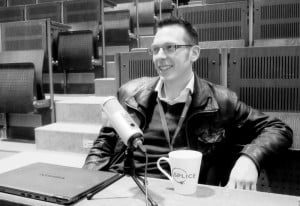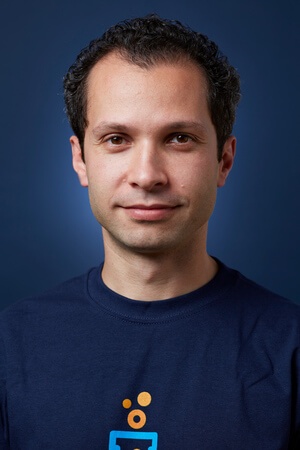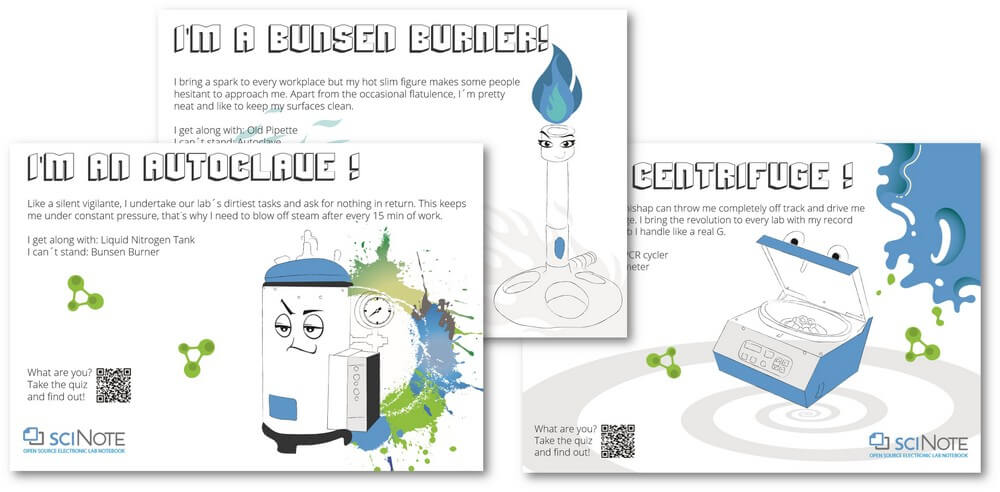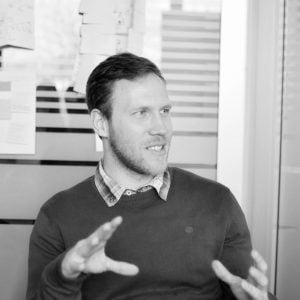Meet Justin O'Grady, Lecturer in Medical Microbiology, University of East Anglia and Managing Editor of the BDQ Biomolecular Detection and Quantification Journal.
"A lot of what you do can have an impact. If you develop good tests and they are translated, they will make an impact on people’s lives."
MUKUNDH: Hi folks! We are in conversation with Justin O'Grady. He works with the University of East Anglia and is also the new Managing Editor of the BDQ Biomolecular Detection and Quantification Journal that has been out for the last year or so. He will talk to us about how he got there and his journey as a researcher.
JUSTIN: Hello. How are you?
MUKUNDH: So, starting off, what is your first memory you have of wanting to be a researcher, of your fascination with science?
JUSTIN: I guess when I was quite young in primary school I spent quite a lot of time being interested in nature; nature-type things, nature walks with teachers etc, which I found interesting, but I guess it wasn’t really until I started studying biology in secondary school that I really became interested in science.
MUKUNDH: So how did this lead to your decision to do a PhD?
JUSTIN: I suppose that the decision was that I wanted to do science in university and once I did science in university, I eventually decided to do a PhD. I actually took time out between my masters and my PhD. I had a chance to do a PhD directly after my degree but I decided not to and I went and traveled to Australia and around the world. When I came back from that I felt ready and I went and I did a PhD.
After a few years in industry I felt that I preferred the academic freedom that was available in academia compared to an industry position.
MUKUNDH: Ok, so a lot of us, I myself included, have this “when you are doing your PhD?” It is all about getting that PhD, the higher grade, and then you are like “Hmmm… have I gotten what I wanted to and what should I do now?” How was that thought process for you after your PhD?
JUSTIN: Well it is a challenging time, isn’t it? Because you don’t really know what you are really going to do next. But I suppose for me it was a little easier because I had been offered a post doc from my PhD supervisor. So I started working as a post doc while writing my PhD. That kind of made that transition quite easy. I continued in an area of research I was interested in, but I think maybe that transition came for me while I was trying to find my next position and so that’s when I moved to industry. I decided that maybe it’s a bit safer and maybe it’s a bit easier, and I wanted to try it out, but after a few years in industry I felt that I preferred the academic freedom that was available in academia compared to an industry position.
I realized that a lot of what you do can have an impact. If you develop good tests and they are translated, they will make an impact on people’s lives, especially in Africa. So developing rapid tests that are translatable to science in Africa is something I am very interested in and trying to do.
MUKUNDH: You talked a little bit earlier about your travels and I know you’ve also been to Tanzania for work, so how much does that influence the questions that you ask in your research?
JUSTIN: A lot I think. Global health has become a big part of my research over the years and I suppose it started when I started developing TB (tuberculosis) diagnostic tests when I was in industry. I felt that it was an area I enjoyed: it was an area that I wanted to help out more from the inside. When I moved back to academia I took a position at UCL (University College London) in London and I started working for a well-known TB expert and I spent time in Zambia, Tanzania and South Africa. So that changed a lot of the way that I looked at science and I realized that a lot of what you do can have an impact. If you develop good tests and they are translated, they will make an impact on people’s lives, especially in Africa. So developing rapid tests that are translatable to science in Africa is something I am very interested in and trying to do. Right now I have an African project running and I am applying for funding for this type of thing.
I guess rather than just getting an awful lot of short reads which we will eventually scaffold using whatever method, there may be the potential to look at whole genomes right from the start, to not miss things and to fully understand bacterial genomes and human genomes right from the first time they are sequenced.
MUKUNDH: Great! Great Justin! So you and your team you worked on the new Nanopore instrument designed to find out something about antibiotic resistance? Moving forward: how do you think this technology will evolve in the years to come?
JUSTIN: I think that Nanopore technology is exciting. It’s something that has the potential to add another level to what we can do in terms of genomics. I guess rather than just getting an awful lot of short reads which we will eventually scaffold using whatever method, there may be the potential to look at whole genomes right from the start, to not miss things and to fully understand bacterial genomes and human genomes right from the first time they are sequenced. That would depend of course on how sensitive they are, whether their identity is good enough and the yields you get from different machines. But Oxford Nanopore’s ambitions in this area are very grand, so I assume they would eventually like to be the key and main player in the world of NGS (Next Generation Sequencing), like Illumina. Is that going to happen? I don’t know, but I believe that they will certainly be a big player in the next few years.
MUKUNDH: So coming to your new goal as the Managing Director of BDQ: tell us a little bit about that.
JUSTIN: The Journal is growing. We had our first issue in September, so we’ve been going for just over six months. We had ten articles published so far and there’s another ten or so going to come out next month. We hope to have quite a lot of articles through the special issue that we will run as a part of qPCR and NGS 2015, so it’s building and strengthening all the time. We have good support from the Publisher Elsevier and we hope that, within six months or so, we will be listed on PubMed and then, within three years of the journal starting, we will get our first recorded Impact Factor (IF), which we hope should be pretty good.
It’s all about making sure we are producing good, reproducible science using good methods and encouraging the community to produce and report their science accurately.
MUKUNDH: Tell us more about the values of the people you would like to see in this Journal compared to what is already out there.
JUSTIN: I think this Journal is very broad in scope and so the idea is that people should submit articles which are kind of method based. It’s all about making sure we are producing good, reproducible science using good methods and encouraging the community to produce and report their science accurately and produce good science that is reproducible. That’s the main focus of the Journal and that’s what this community likes to do anyway. It’s technology focused, it’s method focused and it’s all about good methodology that is reproducible. As Jim Huggett said, when he spoke at the opening ceremony (qPCR and NGS 2015 Event, Freising, Germany), these types of articles can be highly cited once people figure out the right way to control reactions, come out with MIQE guidelines and discuss the way the science should be reported. A lot of people will want to cite those articles and show they are reporting their science correctly and that is the basis behind the Journal.
These types of articles can be highly cited once people figure out the right way to control reactions, come out with MIQE guidelines and discuss the way the science should be reported.
MUKUNDH: Thanks Justin and so, just before we let you go today, do you have any pearls of wisdom for our listeners? For students starting PhDs, first time post docs or molecular scientists going back and forth between academia and industry?
JUSTIN: I think academia is a challenging career and it’s hard to make it as there are so many things you need, but don’t give up as there are plenty of opportunities. Hard work and a little bit of luck: that’s what’s needed.
MUKUNDH: Luck of the Irish.
JUSTIN: I think you need a bit of luck in your life. But I think hard work certainly can help a lot. Try industry and see. Don’t be scared to go to industry: not everyone is going to end up as a professor at some university. There are so many ways that you can find a successful career: don’t give up if things are not working out.
MUKUNDH: Great Justin, thanks for sharing your research life and your journey and we’ll let you go now.
JUSTIN: Thank you very much.
[tw_callout size="waves-shortcode" text="" callout_style="style2" thumb="" btn_text="Republish the article" color="#37a0d9" btn_url="https://scinote.net/blog/republish/" btn_target="_blank"]





